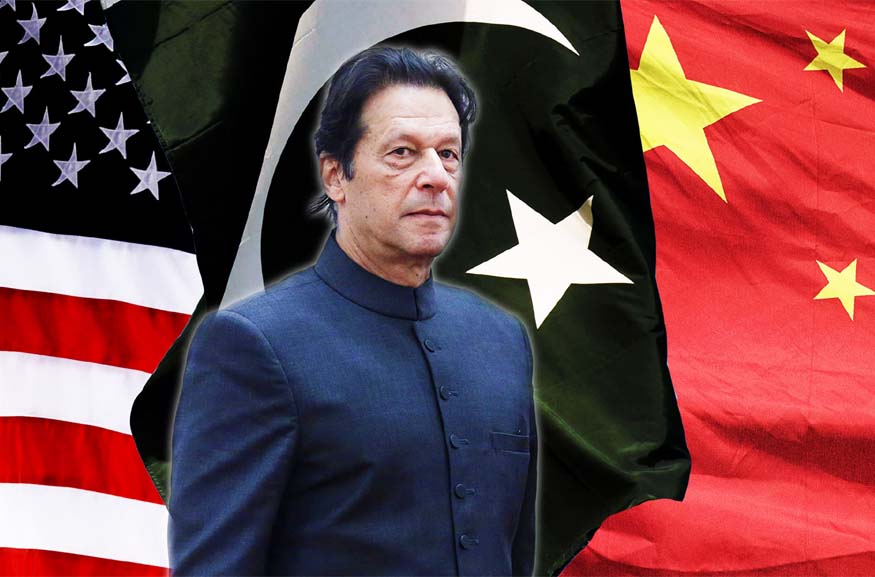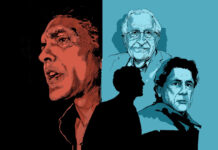When the coronavirus suddenly emerged in Wuhan province, panicked Chinese authorities botched it badly and were sharply criticised internationally. Yet rapid self-correction led to a systematic, comprehensive and coordinated response. Soon China ‘flattened the curve’ drawing praise from everywhere (except the US). Now, by sending thousands of ventilators and millions of masks overseas, China is re-imaging itself as a world leader battling the pandemic.
China succeeded because it takes science seriously — very seriously. When its epidemiologists saw Titanic speeding towards an iceberg, they demanded drastic action. Raised in a culture of science, the Chinese political establishment concurred and soon engineered the largest mass mobilisation in recent world history. Imposing country-wide quarantines, building a score of temporary hospitals, and meticulously locating all who might have encountered the virus, China showed what a disciplined, rational and collective response could do.
The United States, undoubtedly the world’s most scientifically advanced country, could have done still better. Approximately 18 American citizens have died for every Chinese one and so the urgency is greater. But a quirk of history has put at America’s head an extreme right-wing, science-bashing president who just rebuked his country’s senior-most epidemiologist, cut off funds to the World Health Organisation, and ordered America to end its lockdown.
The state’s scorn for science and surrender to religious forces has put Pakistan’s millions in danger.
Trump’s approval rating still hovers around 50 per cent — a sad thing for a nation that the world once admired but now mocks. Nevertheless, its suffering could have been still worse. Fortunately, Americans had the good sense not to buy into the crazy prescription of a lunatic — even if he’s their president — and self-inject Lysol/Dettol as protection against the virus. The mask remains mandatory and social-distancing has lessened but slightly.
Ordinary Americans are partially overcoming Trumpism because they, like ordinary Chinese, were raised inside a cocoon of rationality. Evangelists aside, all others accept that disease comes from viruses and bacteria, not God’s wrath. All who went to high school learned at least a few things there. Proper education pays.
What of Pakistan, both leadership and people? An image coming to mind is that of Prime Minister Imran Khan reverentially listening to Maulana Tariq Jamil at a fundraiser where the latter piteously bleated to the heavens for forgiveness and blamed scantily clad women for bringing down divine punishment. Another image: though in dotage, Khan follows Trump in refusing to wear a mask lest his appeal be diminished. His unfazed followers say no evil virus can defeat a brave man under God’s protection.
But all bravery evaporates when up against religious forces. Suspecting that the government was planning to close mosques and shrines, in a rare display of unity both Sunni and Shia ulema sent a stern warning. In response, President Arif Alvi declared mosques could remain open subject to 20 conditions agreed upon by the government and ulema. Like everyone else, he knew it was a farce. Indeed, the ink was still wet when flagrant violations were reported in about 80 per cent of the country’s mosques.
Thereafter the floodgates crashed down. After a brief hiatus, public places are now teeming with unmasked and ungloved people who have recklessly abandoned all to fate and chance. Food, footwear, and clothing markets are packed. Even as Covid deaths spiral up, life is normalising everywhere except where priorities are low — such as education. Although younger people are statistically at lower risk all schools, colleges, and universities in Punjab will remain closed until July 15.
What makes ordinary Pakistanis so much more religiously charged and difficult to handle than Muslims elsewhere? Saudi Arabia plans to enforce a countrywide five-day-long 24-hour curfew over the forthcoming Eidul Fitr, while Iran’s interior minister says the government is still debating whether to impose a full lockdown on that day.
But to ban congregational prayers, and follow the steps taken by other Muslim countries, is impossible for Pakistan. Even if the government was to so decide, ordinary policemen and foot soldiers would likely disobey received orders. The bitter experiences of moving against the Taliban in the aftermath of 9/11 have yet to fade from the minds of the military establishment.
President Alvi therefore had no choice other than seek face-saving. Whether half-civilian, mostly-military, or full military, every government must mollify the likes of Maulana Abdul Aziz of Lal Masjid because mullahs control the masses. The state tried choosing co-optation over confrontation, but this was sensed — correctly — as a sign of weakness.
Might more education fix the problem? Very often one hears that expanding education will induce a more rational outlook and bring Pakistan closer to more enlightened and more governable Muslim countries like Turkey, Malaysia, or Morocco. But if education means the stuff which presently goes under that name, then this cannot happen.
The core impediment to greater rationality is that particular interpretation of our national slogan Faith-Unity-Discipline (and permutations thereof) which gained currency during the Ziaul Haq era. It has since remained dominant. In seeking to create national unity through faith alone, the price paid was a demotion of reason and a demotion of trust in temporal institutions. This reduced governability. Whatever laws the state now makes are regarded by the public as man-made and distinctly secondary to orders received from a much higher authority.
This mindset permeates every aspect of life. Reforming education and creating a critical mindset becomes extraordinarily difficult in these circumstances. Science — impossible without scientific thinking — remains stuck despite large injections of money. Pakistanis do not question science’s utility for making bombs, machines, and medicines. But any step-by-step process that demands carefully weighing empirical evidence is culturally alien. Few encounter it in school, even while studying science subjects.
No one knows what price Covid-19 will extract for our disrespect of science and reason. Epidemiology and virology lack the exactness of physics so even our best experts can provide only guesstimates and advise on setting strategies. But since science is little understood or valued, their recommendations fall on deaf ears. If lucky, Pakistan’s final death toll will be limited to a few thousands. What’s certain, however, is that this ship’s crew and captain are powerless to steer it away from the iceberg ahead.







